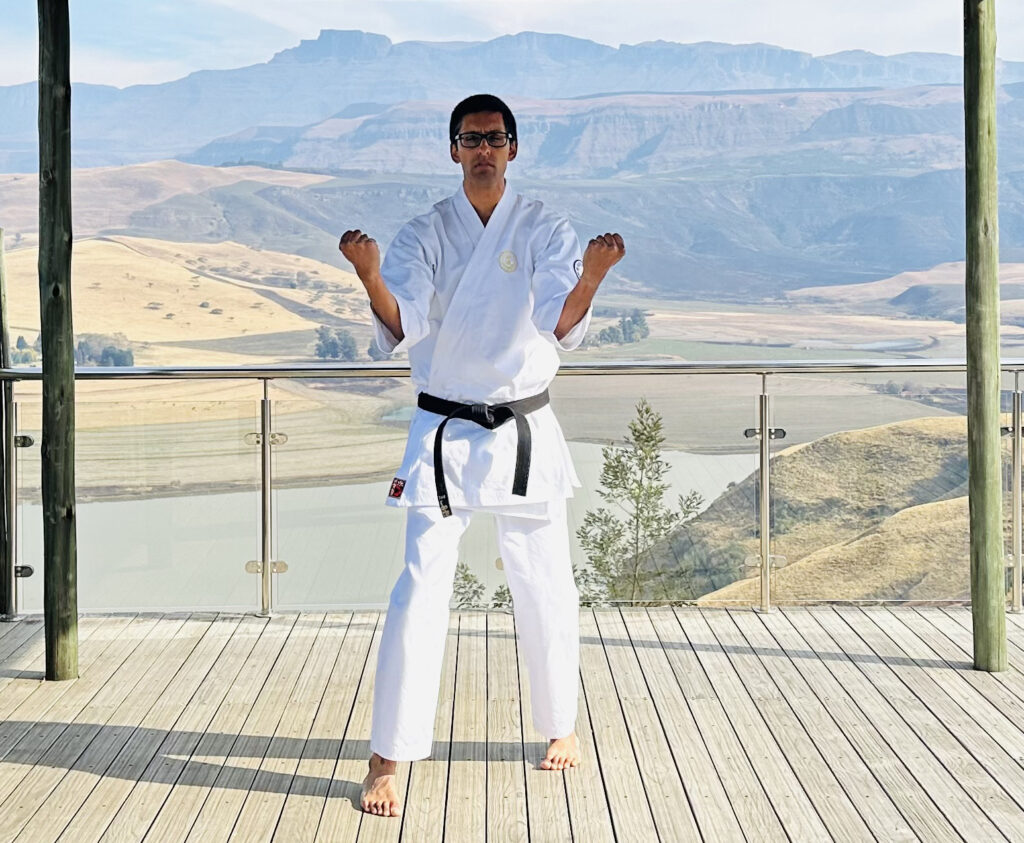
Students pursuing studies in York University’s Kinesiology & Health Science program may have the opportunity to learn about karate-do from a knight.
Sachil Singh, assistant professor of physical culture and health technologies in datafied societies, recently earned recognition in Japan when he was honoured with a knighthood for his accomplishments in karate-do.

During an April 30 ceremony in Kyoto, Japan, Singh was knighted by the Dai Nippon Butoku Kai (DNBK), an organization established in 1895 under the authority of the Japanese government, with the endorsement of the Japanese Royal Family, and received the rank of Fourth Dan in karate-do and the "Renshi" or "Polished Warrior" title.
“It was an incredibly moving experience," says Singh, "not only because it allowed for a moment of pause as I reflected on my martial arts journey spanning 31 years, but also because the sword used for the knighthood belonged to Miyamoto Musashi."
Musashi, he explains, lived in the 16th and 17th centuries and is one of the most legendary Samurai in Japanese history. "I can still feel the weight of the sword on my shoulder as I lowered myself on my right knee; it offers a reminder of my privilege and calling to preserve martial virtues, and promote values of equity, peace, mutual understanding, mutual prosperity and respect through martial arts training and education."
The course promotes EDI, explains Singh, because its starting point is to show sensitivity to students' self-reported positionalities. Additionally, by meeting each student where they are in terms of ability (mental strength, mobility, flexibility etc), the course embraces difference and is met with an approach of assessing students against themselves.
"Students are not competing with anyone but themselves since the goal is individual growth and development," says Singh, who uses this approach as a springboard to promote EDI because it allows for diversity to dictate how each class runs.
Singh's Japan trip also included an invitation to Meiji University (Tokyo) from the Japan Society for Information and Management (JSIM) where he delivered a research talk on artificial intelligence, datafication and racial discrimination in health care.
"York already enjoys a partnership with Meiji University, so I used this opportunity to build on those relations and foster research dialogue between the respective institutions," said Singh.
Singh's main areas of research are medical sociology, critical race studies and algorithmic inequality. As an interdisciplinary scholar, he works in these spaces to bring attention to how life chances are shaped by stereotypes and (mis)information about race and ethnicity. His work demonstrates how these problems can make their way into the medical field as “objective” or “scientific,” thereby raising concerns for patient care.
Singh has published on this research in the peer-reviewed journals Health and Social Science & Medicine, and has a forthcoming chapter in The Routledge International Handbook of Valuation and Society. He is also co-editor of the journal Big Data & Society.
He teaches in areas of socio-cultural history, identity politics, racial discrimination and surveillance.
